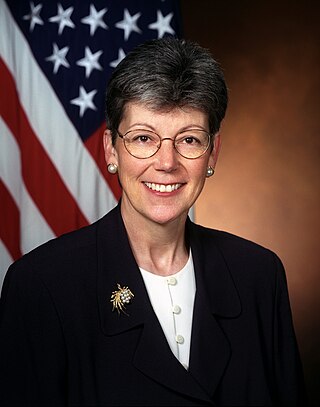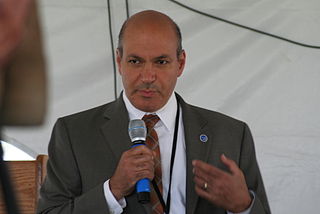External links
- Colorado Center for Astrodynamics Research official web site
- Faculty
- Research Faculty
- Research Manager , Sarah Melseen
The Colorado Center for Astrodynamics Research (CCAR) is a renowned aerospace research center specializing in orbital mechanics and spacecraft navigation, located at the University of Colorado at Boulder. CCAR was established at the University of Colorado at Boulder in the College of Engineering and Applied science during the fall of 1985 as a part of the University of Colorado's commitment to develop a program of excellence in space science and is hosted by the Department of Aerospace Engineering Sciences. CCAR is a multidisciplinary group involving faculty, staff and students from the Department of Aerospace Engineering Sciences. Its research program emphasizes astrodynamics, satellite meteorology, oceanography, geodesy, and terrestrial vegetation studies.
CCAR was founded by professor George Born who served as Director for 28 years and Director Emeritus until his death in 2016. Born joined University of Colorado at Boulder after working on high-profile missions like TOPEX/Poseidon, Seasat, Mariner 9 and the Viking program at the Jet Propulsion Laboratory during the 1970s.

The University of Colorado Boulder is a public research university in Boulder, Colorado, United States. Founded in 1876, five months before Colorado became a state, it is the flagship university of the University of Colorado system. CU Boulder is a member of the Association of American Universities and is classified among R1: Doctoral Universities – Very high research activity.

Ronald "Ron" Michael Sega is an American former astronaut who is professor of systems engineering and Vice President for Energy and the Environment at the Colorado State University Research Foundation, a non-profit advocacy organization supporting CSU. He is also the Vice President and Enterprise Executive for Energy and Environment at Ohio State University. From August 2005 to August 2007, he served as Under Secretary of the Air Force. He is a retired major general in the United States Air Force and a former NASA astronaut. Sega was born in Cleveland, Ohio, he is of Slovene origin. He was married to fellow astronaut Bonnie J. Dunbar. He is now married to Ann Sega and they have two sons. He has lived in both Northfield, Ohio and Colorado Springs.

The University of Colorado Colorado Springs (UCCS) is a public research university in Colorado Springs, Colorado. It is one of four campuses that make up the University of Colorado system. As of Fall 2017, UCCS had over 12,400 undergraduate and 1,822 graduate students, with 32% ethnic minority students. It is classified among "R2: Doctoral Universities – High research activity".

James Shelton Voss is a retired United States Army colonel and NASA astronaut. During his time with NASA, Voss flew in space five times on board the Space Shuttle and International Space Station. He also served as deputy of Flight Operations for the Space Station Program Mission Integration and Operations Office. While participating in ISS Expedition 2, he and Susan Helms conducted an 8-hour and 56 minute spacewalk, the longest to date.

The Khajeh Nasir Toosi University of Technology is a public research university in Tehran, Iran. It is named after medieval Persian scholar Khajeh Nasir Toosi. The university is considered one of the most prestigious institutions of higher education in Iran. Acceptance to the university is highly competitive, entrance to undergraduate and graduate programs typically requires scoring among the top 1% of students in the Iranian University Entrance Exam.
Robert M. L. Baker Jr. is an American physicist. He earned a bachelor's degree in physics at UCLA summa cum laude, was elected to Phi Beta Kappa, and earned a master's degree in physics and a Ph.D. in engineering at UCLA. The Ph.D. in engineering, with a specialization in aerospace, was, according to UCLA officials, the first of its kind to be granted in the United States. Baker was a lecturer and assistant professor at UCLA, in astronomy (1959–63) and the Department of Engineering and Applied Science (1963–71). During that time he was also a lecturer at the United States Air Force Academy.

Delores Maria Etter is a former United States Deputy Under Secretary of Defense for Science and Technology from 1998 to 2001 and former Assistant Secretary of the Navy for research, science, and technology from 2005 to 2007.

Waleed Abdalati held the position of NASA Chief Scientist from 3 January 2011 through December 2012. Abdalati was named to this position on 13 December 2010 by NASA Administrator Charles Bolden. Abdalati previously served NASA as Head of Cryospheric Sciences at Goddard Space Flight Center between January 2004 and June 2008.

The University of Colorado Denver is a public research university located in downtown Denver, Colorado. It is part of the University of Colorado system. Established in 1912 as an extension of the University of Colorado Boulder, CU Denver attained university status and became an independent institution in 1973. CU Denver is the largest research university in Colorado, and is classified among R1: Doctoral Universities - Very High Research Activity. The university's graduate programs award more master's degrees than any other institution in the state, serving roughly 5,000 students annually.

Steven Patrick Chappell is an American aerospace engineer. He is a Technical Lead & Research Specialist for Wyle Integrated Science & Engineering at NASA's Johnson Space Center (JSC) in Houston, Texas. He is helping to define and execute the research needed to optimize human performance in next-generation spacesuits and extra-vehicular activity (EVA) systems. Chappell served as an aquanaut on the NASA Extreme Environment Mission Operations 14 crew.

Susan K. Avery is an American atmospheric physicist and President Emerita of the Woods Hole Oceanographic Institution (WHOI) in Massachusetts, where she led the marine science and engineering research organization from 2008–2015. She was the ninth president and director and the first woman to hold the leadership role at WHOI. She is Professor Emerita at the University of Colorado, Boulder (UCB), where she served on the faculty from 1982–2008. While at UCB she also served in various administrative positions, including director of the Cooperative Institute for Research in Environmental Sciences (CIRES), a 550-member collaborative institute between UCB and the National Oceanic and Atmospheric Administration (NOAA) (1994-2004); and interim positions (2004-2007) as vice chancellor for research and dean of the graduate school, and provost and executive vice chancellor for academic affairs. Currently she is a senior fellow at the Consortium for Ocean Leadership in Washington, D.C.
Robert B. Schnabel is an American computer scientist. He was executive director and CEO of the Association for Computing Machinery (ACM) from November 1, 2015 to 2017. He is now professor and external chair of computer science at University of Colorado Boulder.

Emily Ann Carter is the Gerhard R. Andlinger Professor in Energy and the Environment and a professor of mechanical and aerospace engineering, the Andlinger Center for Energy and the Environment, and the Program in Applied and Computational Mathematics at Princeton University. She has been on the faculty at Princeton since 2004, including as serving as Princeton's Dean of the School of Engineering and Applied Science from 2016 to 2019. She moved to UCLA to serve as executive vice chancellor and provost and a distinguished professor of chemical and biomolecular engineering, before returning to Princeton in December 2021. Carter is a theorist and computational scientist whose work combines quantum mechanics, solid-state physics, and applied mathematics.

Nikolaus Correll is a roboticist and an associate professor at the University of Colorado at Boulder in the Department of Computer Science with courtesy appointments in the departments of Aerospace, Electrical and Materials Engineering. Nikolaus is the faculty director of the Interdisciplinary Research Theme on Multi-functional Materials at the College of Engineering and Applied Science, and the founder and CTO of Robotic Materials Inc.
Noah David Finkelstein is a professor of physics at the University of Colorado Boulder. He is a founding co-director of the Colorado Center for STEM Learning, a President’s Teaching Scholar, and the inaugural Timmerhaus Teaching Ambassador. His research focuses on physics education and on developing models of context, the scope of which involves students, departments, and institutional scales of transformation. In 2010, Finkelstein testified to the United States House Committee on Science, Space and Technology on how to strengthen undergraduate and postgraduate STEM education.
George Henry Born was an American aerospace engineer, Distinguished Professor, founder and Director Emeritus of the Colorado Center for Astrodynamics Research (CCAR) at the University of Colorado Boulder. He is known for his work in satellite navigation and precise orbit determination. He worked on various missions while at the Jet Propulsion Laboratory as well as navigation support for the Apollo program in the late 1960s while at Johnson Space Center.
Moriba Kemessia Jah is an American space scientist and aerospace engineer who describes himself as a "space environmentalist", specializing in orbit determination and prediction, especially as related to space situational awareness and space traffic monitoring. He is currently an associate professor of Aerospace Engineering and Engineering Mechanics at the University of Texas at Austin. Jah previously worked as a spacecraft navigator at the NASA Jet Propulsion Laboratory, where he was a navigator for the Mars Global Surveyor, Mars Odyssey, Mars Express, Mars Exploration Rover, and his last mission was the Mars Reconnaissance Orbiter. He is a Fellow of the American Astronautical Society, the Air Force Research Laboratory, the International Association for the Advancement of Space Safety and, the Royal Astronomical Society. Jah was also selected into the 10th anniversary class of TED Fellows and was named a MacArthur Fellow in 2022. He also was selected into the AIAA class of Fellows and Honorary Fellows in the year of the 50th Anniversary of Apollo 11. The AIAA "confers the distinction of Fellow upon individuals in recognition of their notable and valuable contributions to the arts, sciences or technology of aeronautics and astronautics."
The Ann and H.J. Smead Department of Aerospace Engineering Sciences is a department within the College of Engineering & Applied Science at the University of Colorado Boulder, providing aerospace education and research. Housed primarily in the Aerospace Engineering Sciences building on the university's East Campus in Boulder, it awards baccalaureate, masters, and PhD degrees, as well as certificates, graduating approximately 225 students annually. The Ann and H.J. Smead Department of Aerospace Engineering Sciences is ranked 10th in the nation in both undergraduate and graduate aerospace engineering education among public universities by US News & World Report.
Penina Axelrad is an American aerospace engineer known for her research on satellite orbital dynamics and the Global Positioning System. She is Joseph T. Negler Professor in the Colorado Center for Astrodynamics Research and the Ann and H.J. Smead Aerospace Engineering Sciences department at the University of Colorado.
Brian Maurice Argrow is an American aerospace engineer and Professor in the Department of Aerospace Engineering Sciences at the University of Colorado Boulder. Currently, he serves as the Chair of the department. Argrow specializes in the field of hypersonic aerodynamics, rarefied gas dynamics, dense gas dynamics, and UAVs.